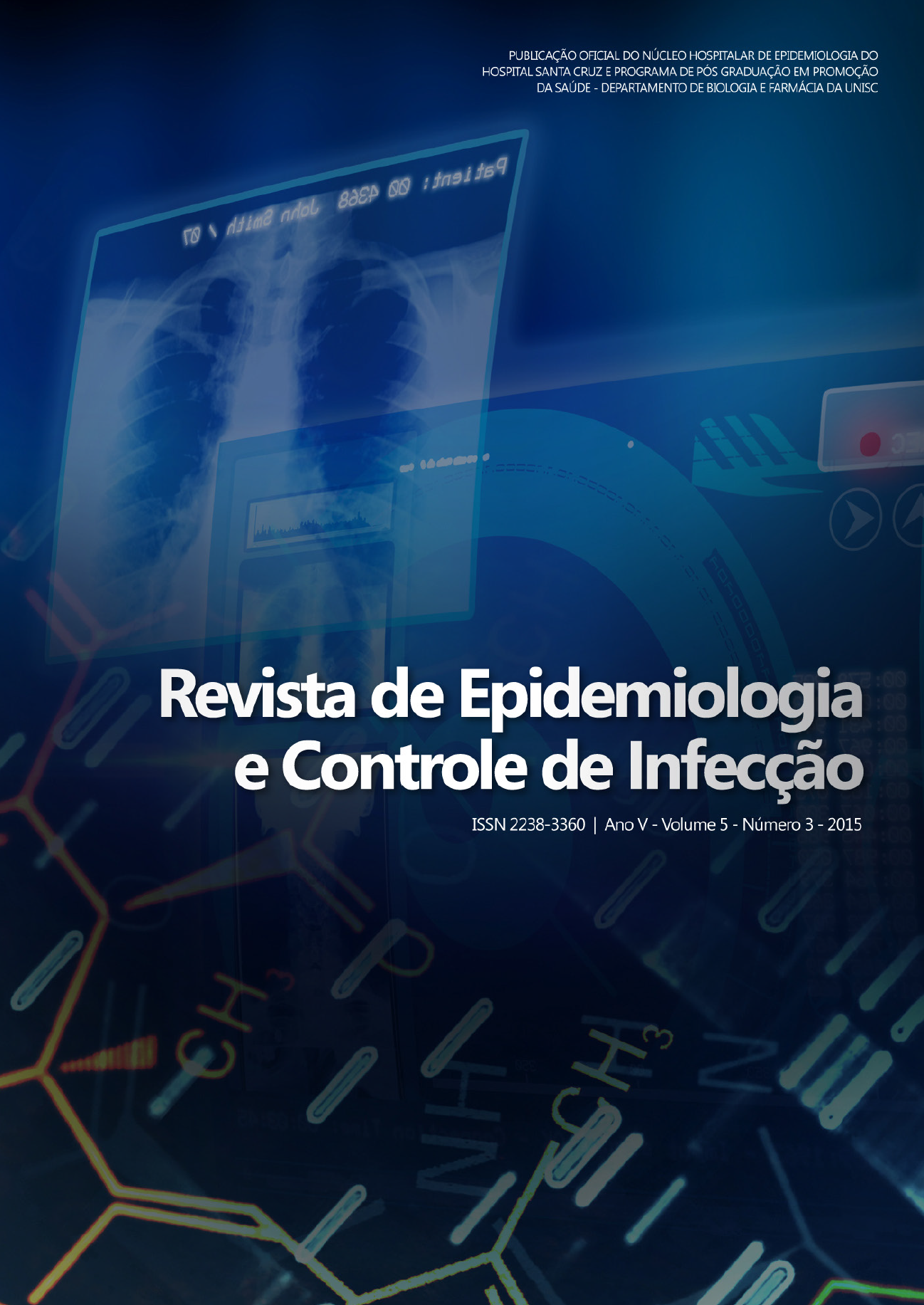Evaluation of Antimicrobial Prescribing Infection Related to Health Care in a Hospital School in Recife – PE
DOI:
https://doi.org/10.17058/reci.v5i3.5496Abstract
Justification and Objective: in Intensive Care Units (ICU) are the highest rates of Healthcare-associated infections (HAI). Antimicrobial therapy for these infections has become increasingly challenging due to high rates of antimicrobial resistance. Thus arises the need for appropriate antibiotic therapy. Thus arises the need to assess the antimicrobial therapy for patients with IRAS The study aims to evaluate antimicrobials prescriptions for patients diagnosed with HAI in the Adult ICU of a teaching hospital in Recife-PE in 2010. Methods: cross-sectional, descriptive, and retrospective study using the HAI reporting forms, prescriptions and medical records of patients aged from 18 years, in Adult ICU of the Instituto de Medicina Integral Prof. Fernando Figueira (IMIP). The variables analyzed in the study were gender, age, admission diagnosis, etiologic agent, Infection Related to Health Care, antibiotics, high and óbto. Data were collected from the analysis of HAI reporting forms, data collection form of HAI reporting forms and records and / or prescriptions. Results: The study population consisted of 31 notifications. The respiratory tract infections were the most frequent (80.6%). The microbiological confirmation was 83.9%, totaling 11 species of microorganisms, one of which being multiresistant. The use of 14 different antimicrobials was observed with monotherapy in a minority of cases. Only two patients underwent five schemes. Mistake regarding prescription was not observed, but misconceptions about some doses, intervals and as an association were highlighted. Conclusion: the indicators analyzed showed no significant discrepancies when compared with other national or international studies. One perceives the need for further studies on the use of antimicrobials. Keywords: Anti-Bacterial Agents. Infection. Prescriptions. Drug Resistance, Microbial. Intensive Care Units.Downloads
Downloads
Published
Issue
Section
License
The author must state that the paper is original (has not been published previously), not infringing any copyright or other ownership right involving third parties. Once the paper is submitted, the Journal reserves the right to make normative changes, such as spelling and grammar, in order to maintain the language standard, but respecting the author’s style. The published papers become ownership of RECI, considering that all the opinions expressed by the authors are their responsibility. Because we are an open access journal, we allow free use of articles in educational and scientific applications provided the source is cited under the Creative Commons CC-BY license.


